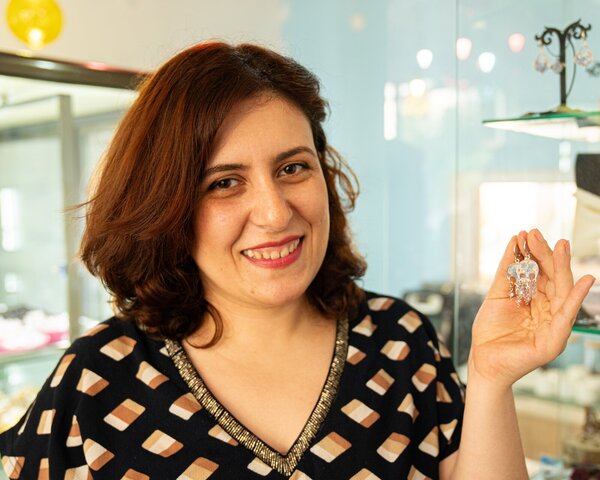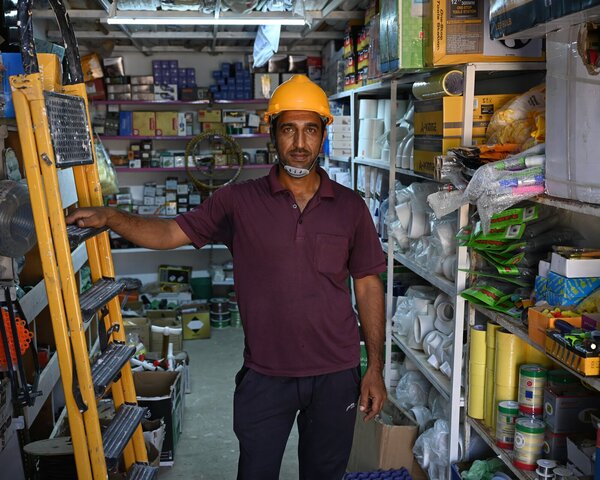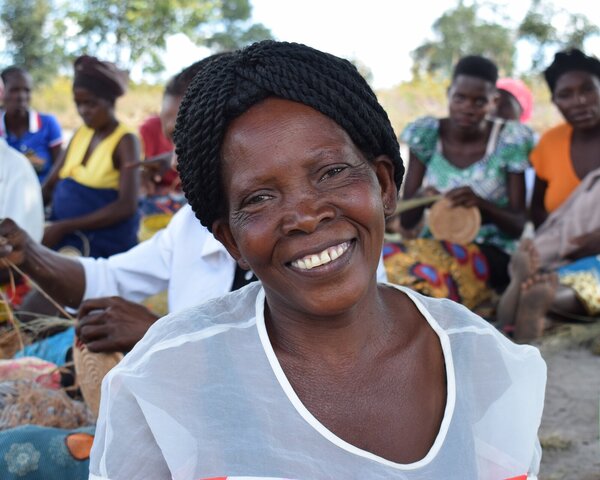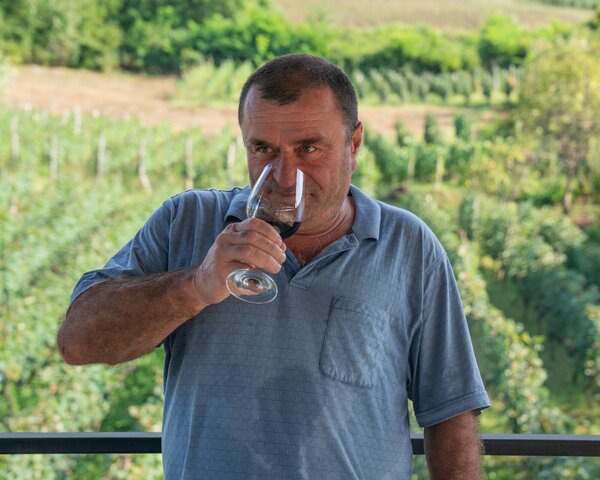For people in disadvantaged regions, mastering a craft is a path to financial self-sufficiency. In places dealing with the impacts of war, it is a significant contributor to their reconstruction. For example, a welding workshop in Iraq, a restaurant in a refugee settlement in Zambia or a traditional jewellery shop in Georgia have all been created thanks to our help.
Stories of successful craftspeople
Traditional Georgian jewellery
Nana comes from the mountain region of Racha in Georgia. After studying business and art in the capital, she returned to her home village. This is despite it being very difficult to find work in the area, which is why people often leave. Caritas supports small craftspeople in Racha and creates job opportunities.
Nana received a grant from Caritas to open a jewellery workshop. There she handcrafts original jewellery using traditional Georgian techniques, which she then sells. "My work is my life," says Nana, who also teaches jewellery making, happily. In addition, she and her mother have opened a small café with delicious homemade cakes. "In the future, I would like to expand my workshop and open my own guesthouse," confides the successful entrepreneur.
Moving from a bike to a tuck-tuck tripled his earnings
Iraqi Muayad inherited his father's electrician trade. But ISIS got in the way of the successful electrician, and he had to flee. When he returned home after the war, he discovered his equipment had been stolen. He equipped his new basic electrician's bag, strapped it to his bicycle and made the rounds of his customers. But he could not make enough income this way.
Thanks to the support of Caritas, Muayad attended a business training training and received a grant to buy the necessary equipment as well as a tuck-tuck. In addition, he opened his shop selling electrical supplies. This gives him access to more customers and also allows him to take on more complex jobs. "I want to thank Caritas for their help. My income has tripled, and I am now helping other people too," says satisfied Muayad, who now employs four people himself.
Handmade baskets
Bertha lives in one of the remote settlements in Zambia. Securing a livelihood is not easy in the area due to limited opportunities. Bertha farms on a small plot of land owned by one of her daughters, but this is not enough to meet her needs. So she decided to join a group of basket weavers.
"I learnt to knit baskets in less than a week. It's not hard," says Bertha. "But some of the bigger baskets take a fortnight to make," she smiles. She is very grateful for the opportunity to make baskets for a living. Not only does she enjoy the work, but it is also an essential source of income for her.
From a small mountain village to the world market
Vazha and his son Akaki live in a remote mountain region of Georgia, where it is not easy to secure a source of income. The family tradition is wine growing, but until recently the grapes from their vineyards went into the barrels of other winemakers. The family did not have the means to produce their own.
Thanks to Caritas' support of craftspeople in the region, Akaki received a grant to buy the necessary winemaking equipment. He focused his winery on production using the traditional qvevri method. The newly established winery quickly succeeded in reaching not only the Georgian but also the world market. This allowed Vazha and Akaki to offer work to other people. They currently employ five people.





